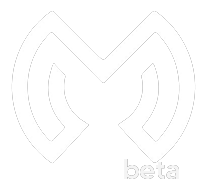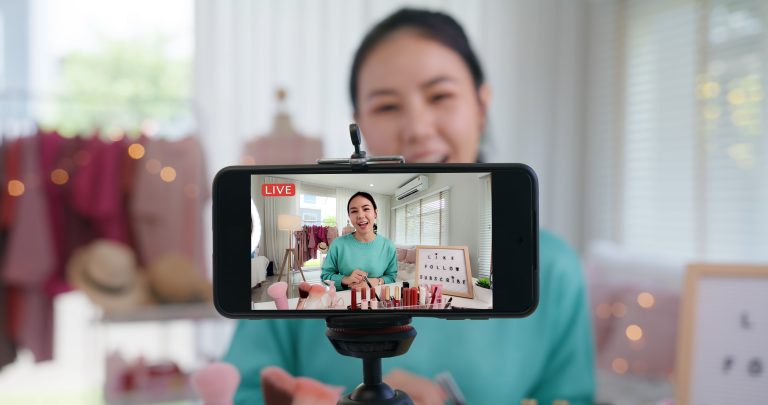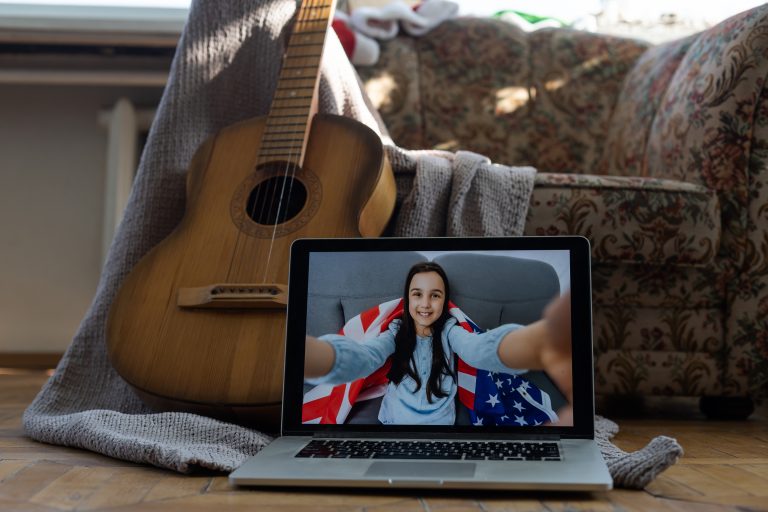TikTok vs Universal Music Group – What It Means for Artists
TikTok has rapidly become one of the most popular social media platforms for music discovery and promotion. Such dominance has not come without growing pains, however. As TikTok usage exploded, major label Universal Music Group (UMG) grew concerned about adequate compensation for their artists whose songs were going viral. After months of negotiations, the two have hashed out a broad new global licensing agreement that resolves these issues and paves the way for further cooperation.
This high-profile partnership speaks to the complex dynamics between social media and the modern music industry. For Universal, the central conflict was ensuring their artists receive fair payment for work shared on TikTok amidst copyright concerns. For TikTok, keeping major labels like UMG onboard is key to maintaining a vibrant ecosystem of music trends and discovery. The resulting deal shows two major forces adapting to find common ground on licensing, a compromise likely to echo across social platforms. For artists and creators, it provides more certainty around compensation and permissions. As music and social media become ever more intertwined, the UMG-TikTok agreement provides a template for balancing the interests of artists, labels, and platforms.
TikTok’s Music Dominance
TikTok has experienced explosive growth over the past few years, rapidly emerging as one of the most popular social media platforms in the world. A key part of TikTok’s appeal is its integration of music, with short video clips set to audio from popular songs. This has made TikTok an increasingly dominant force for music discovery and promotion.
TikTok has experienced tremendous growth, as evidenced by several key metrics. The platform now boasts over one billion monthly active users around the world. In 2020, TikTok was the most downloaded non-game mobile application. There are currently more than 175 million monthly TikTok users in the United States alone. Remarkably, TikTok users spent a combined total exceeding 210 million hours per day watching videos on the platform in 2021. Music is integral to the TikTok experience, with over 175,000 songs each generating over one billion video views last year. In summary, TikTok’s meteoric rise has been fueled by massive global adoption and engagement, with music playing a central role in its identity and popularity.
With this massive reach, TikTok has become a vital platform for hits to go viral. Songs featured in popular TikTok dances or memes often shoot up the charts and become breakout hits. Artists and labels recognize TikTok’s power for instantly promoting songs. Overall, TikTok has disrupted the music industry and changed how hit songs are made in the streaming era.
UMG’s Concerns
Universal Music Group (UMG), the world’s largest music label, has expressed several key concerns regarding their partnership with TikTok. As the platform has rapidly become a dominant force for music discovery and promotion, UMG has struggled with challenges related to music licensing, copyright protection, and revenue sharing.
Specifically, UMG has raised issues with TikTok’s approaches to obtaining proper licensing for songs. They have accused the platform of exploiting loopholes in copyright law to feature major label artists’ music without proper permission or compensation. This unauthorized use of UMG’s catalog on a massive scale threatens their ability to control distribution and profit from their copyrights.
Revenue sharing has also been a major point of dispute between UMG and TikTok. As one of the primary ways UMG monetizes its content, they feel the revenue split on TikTok does not adequately compensate rights holders. With billions of video views incorporating UMG music, the label argues current revenue sharing models provide insufficient royalties compared to traditional platforms. Resolving these licensing and revenue sharing disputes has been central to UMG’s recent negotiations with TikTok.
Negotiations and Agreements
Universal Music Group (UMG) recently entered negotiations with TikTok to address concerns over music licensing, copyright infringement, and revenue sharing on the platform. According to reports, UMG and TikTok reached a global licensing deal that gives UMG more control over how its music is used.
The deal provides UMG artists direct access to TikTok’s promotional tools to help drive music discovery. This allows UMG to get valuable data and analytics from TikTok to analyze trends and consumer preferences.
In return, TikTok now has an expanded music catalog at its disposal, with UMG licensing its full roster of artists to be featured in videos on the app. The multi-year agreement paves the way for UMG artists like Taylor Swift, Billie Eilish, and Post Malone to directly reach TikTok’s diverse audience.
With this new partnership, UMG can share in the revenue being generated from its music on TikTok. The specifics of the revenue split have not been made public. But both sides are incentivized to collaborate, as TikTok gains music content to drive creativity and engagement, while UMG gains exposure, data, and a new revenue stream.
The negotiations exemplify the evolving relationship between music labels and social platforms. As TikTok grows, music rights holders like UMG are flexing their leverage to secure better deals. This trend will likely continue as platforms and creators aim to collaborate in mutually beneficial ways.
Impact on Artists
Universal Music Group’s actions on TikTok will likely have significant impacts on music artists who rely on the platform for promotion and revenue. With over 1 billion monthly active users, TikTok has become a vital discovery channel for artists to reach new audiences. Its short video format lends itself well to viral music trends, launching many songs to mainstream popularity.
However, UMG’s pressure on TikTok for better licensing deals and copyright enforcement may restrict how artists can leverage the platform. If certain labels pull music catalogs or impose strict usage guidelines, it limits artists’ ability to tap into TikTok’s promotional power. Revenue sharing models negotiated in new TikTok agreements could also alter how much income artists earn when their music gets used in videos.
Many creators have built their followings and brands on TikTok, benefiting from its culture of dance challenges, music montages, and lip-syncing. Tighter restrictions may hamper their creativity and ability to make content featuring popular music. Artists without label deals may gain some competitive edge, as indies and newer acts tend to be more flexible on rights. But competitive dynamics on TikTok could shift significantly if UMG’s roster is less accessible.
Overall, UMG’s pressure plays into wider industry tensions between artists seeking visibility and platforms monetizing their content. Artists will watch closely how these deals take shape and whether they offer adequate copyright safeguards without sacrificing TikTok’s value for music discovery.
Impact on Tiktok Content Creators
TikTok has become an essential platform for artists and creators to reach new audiences and promote their music. However, Universal Music Group’s actions could result in significant changes to music availability and licensing terms on TikTok.
If Universal Music Group imposes more restrictive licensing policies, some songs and recordings may no longer be available for use in TikTok videos. This could limit the music that creators have access to when producing TikTok content.
New licensing agreements may also introduce more complex rules around how UMG songs and recordings can be used on TikTok. For example, the company could limit the length of song clips or require direct licensing for any UMG music. This has the potential to restrict content formats on TikTok if portions of the music catalog can no longer be used flexibly.
Overall, Universal Music Group’s negotiations aim to give the company more control over their catalog on TikTok. However, this could inadvertently make it harder for creators to incorporate UMG music into their videos. TikTok and UMG will need to strike a careful balance, ensuring copyright is respected while not unduly limiting creators and music fans on the platform.
Industry Implications
Universal Music Group’s actions could have wide-ranging implications for the relationship between music labels and social media platforms going forward. As TikTok has demonstrated its immense influence in music discovery and promotion, major labels like UMG now have substantial leverage in negotiating licensing deals and revenue shares. This could lead to labels pursuing more aggressive strategies to maximize their revenue from viral platform opportunities.
Some speculate that UMG’s hardline stance with TikTok may encourage other major labels to make bolder moves, potentially withdrawing licensing rights if platforms refuse to meet their demands. This could reshape the power dynamics between labels and platforms, as the labels try to assert more direct control over how their music catalogs are monetized online. For platforms dependent on music content, this may necessitate rethinking revenue models and rights management systems.
Ultimately, UMG’s targeting of TikTok may usher in an era of more contentious and complex licensing negotiations between labels and platforms. Both sides recognize the crucial promotional value exchanged, but labels want a bigger piece of the financial upside, especially for viral hits. This could lead to unpredictable changes in music availability as leverage strategies evolve. For artists and creators, it will remain vitally important to monitor these developments as they shape the landscape of opportunity online.
What This Means for TikTok
TikTok has become a dominant platform for music discovery and viral trends, with many hits emerging from dance challenges, lip syncs, and more on the app. Given the importance of music to the TikTok ecosystem, Universal Music Group’s actions could significantly impact the future of music on the platform.
If UMG’s catalog is limited on TikTok, it could potentially stifle some of the emerging music trends and challenges that require UMG artists’ songs. TikTok thrives on its use of music, and restrictions to UMG’s catalog could change the types of sounds and songs that gain traction in trends on the app.
Additionally, if UMG is not satisfied with the partnership agreements, they may ultimately decide to withdraw their catalog entirely from TikTok. This would be a major loss for TikTok, removing a significant portion of popular music from the platform. It could drastically reduce the songs available for users to include in their videos and may force TikTok to find alternate ways to fill that gap.
Overall, UMG’s negotiations have sparked many questions around the future availability of UMG artists’ catalogs on TikTok. Their music licensing and revenue sharing concerns could lead to major changes in how music is discovered, shared, and monetized on the platform if agreements are not reached. TikTok’s success has been heavily intertwined with music, and its future may depend greatly on partnerships with major labels like UMG.
Looking Ahead
The actions taken by Universal Music Group and the subsequent agreements with TikTok highlight the evolving dynamics between music labels and social media platforms. As TikTok continues its meteoric rise, music industry giants like UMG are being forced to re-evaluate their positions and strategies for optimizing the value of their catalogues.
Other major labels will likely follow UMG’s lead in negotiating improved licensing terms, revenue sharing and copyright protections. This could fundamentally alter the balance of power and business models underpinning the relationships between platforms and rights-holders.
More broadly, these developments underscore the music industry’s ongoing need to adapt to emerging technologies and distribution mediums. As music consumption patterns rapidly shift to streaming and viral social platforms, record labels must balance maximizing monetization with fan accessibility.
Striking the right equilibrium between serving artists and serving social platforms remains an open challenge. But the UMG-TikTok saga foreshadows further evolution in how the music industry chooses to harness the marketing power of social media while still nurturing a vibrant creative ecosystem.
Conclusion
The recent negotiations between Universal Music Group (UMG) and TikTok highlight the complex dynamics between music labels and social platforms. As TikTok has rapidly grown into a dominant force for music discovery and viral trends, major labels like UMG have raised concerns around licensing, copyright, and fair revenue sharing.
While UMG and TikTok came to an agreement to address these issues, the impact on artists and creators remains uncertain. Licensing restrictions could potentially limit music availability or change how revenues are allocated to artists. At the same time, partnerships between labels and platforms could introduce new opportunities for artists to share their work.
Ultimately, the UMG-TikTok deal exemplifies the power struggle between traditional music companies and emerging social platforms. It also offers a glimpse into the future relationship between the music industry and social media. There are still many open questions around how platforms like TikTok will transform music delivery, promotion, and monetization.
We invite readers to share their perspectives on this evolving dynamic. What do you think the UMG-TikTok partnership means for the future of the music industry? How might it impact artists and music availability on social platforms? Please share your thoughts in the comments below.






